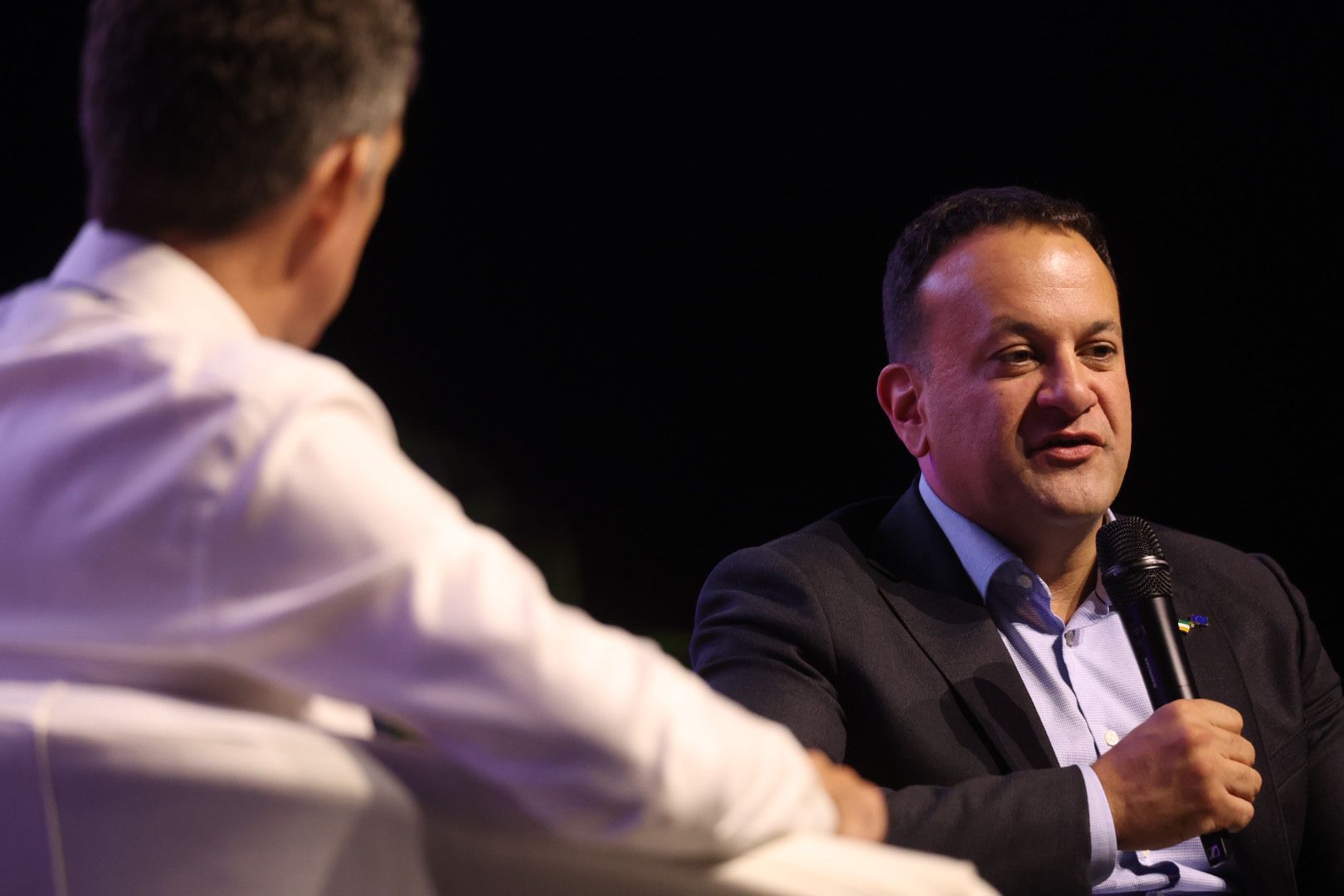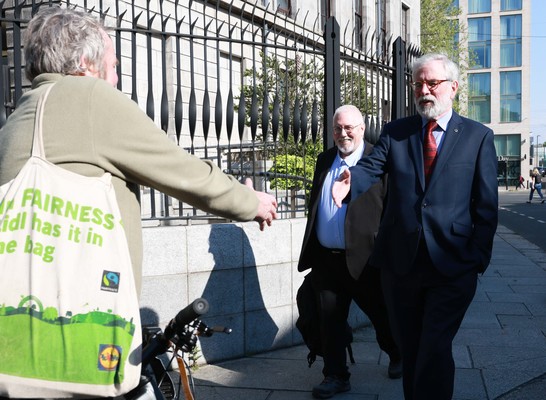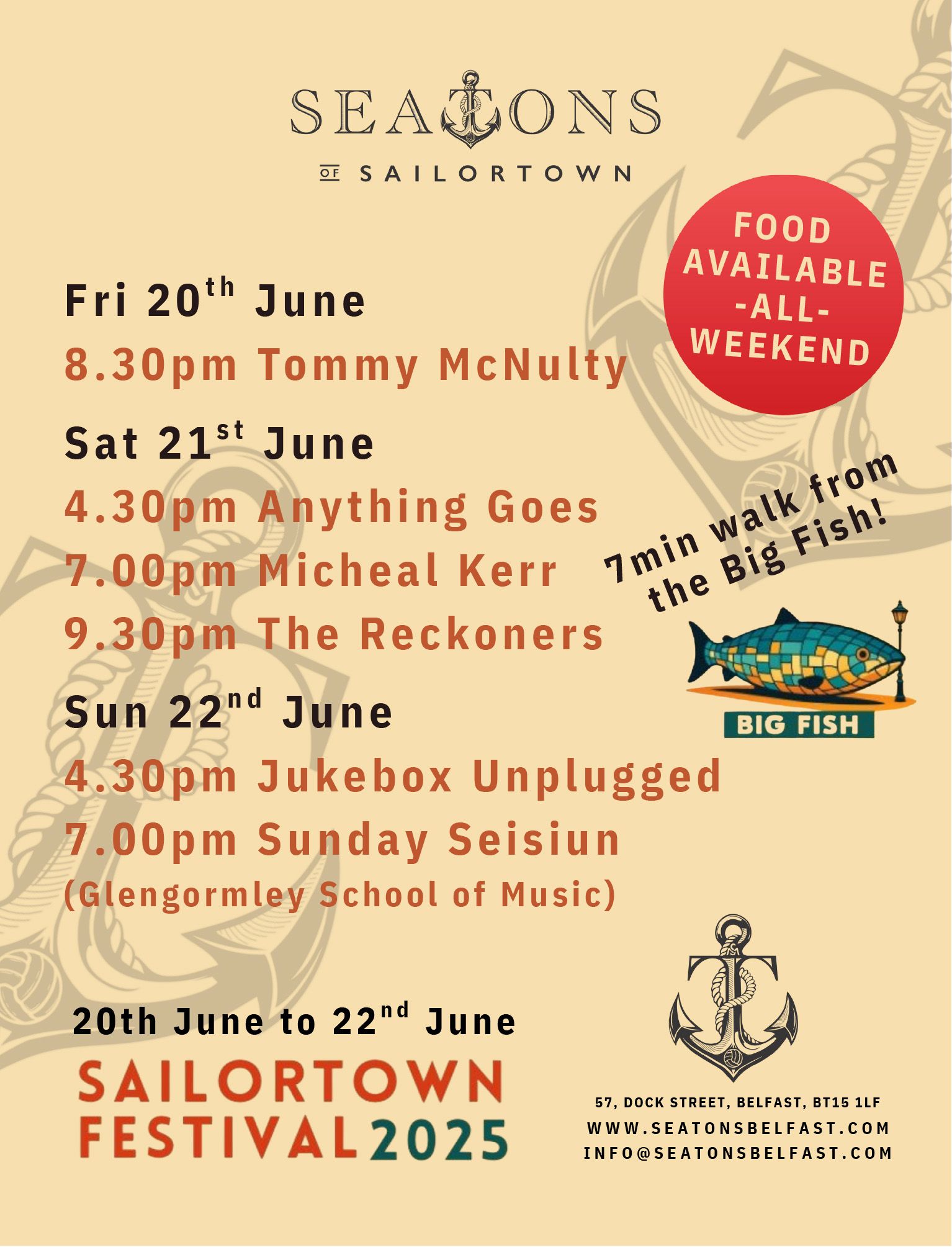OVER the past week I’ve been at two political events, both of them nationalist in tone. The first was a Shared Island event (think Micheál Martin) and the second an Ireland’s Future event. The Shared Island event had one main speaker, the Ireland’s Future event had a whole range of speakers.
The Shared Island event was in the Linenhall Library and featured Dan Mulhall, the former Irish Ambassador to the UK and the US. He obviously is, or was, a big hitter, which makes it baffling why his audience was in single figures – less than ten, I would say. No, seriously.
If Dan’s talk had a theme it was that reconciliation is something we all should be involved in. Nobody said that reconciliation would have to precede a border poll, but somehow I picked up a sense of that line of thought. The funding of a bridge from Narrow Water to Omeath was hailed as an example of how to (literally) build bridges between communities. Besides Mulhall, Claire Hanna and Matthew O’Toole spoke briefly.
Was it an exciting event? Um, no. That may have been because of the tiny audience, or it may have reflected the lack of enthusiasm behind the Shared Island endeavour. Which is a pity, really, because the bridge at Narrow Water and the upgrading of the A5 are both practical ventures, putting Shared Island’s money where its mouth is.
The other event was the Ireland’s Future gathering in the SSE Arena. While I was waiting outside the Arena for my friend Pat McArt, I fell into conversation with a number of people. They were very much taken by the fact that Ireland’s Future could hold such a large event (there were approximately 2,000 people in the audience). “I wish my mother could have lived to see this day,” one woman said, and she’d tears in her eyes.
There was a huge number of speakers, starting with Professor Brendan O’Leary, who talked about and demonstrated the changed demographic map here and how this meant that 2030 would be a reasonable date for a border poll.
“It was an ambitious endeavour by Ireland's Future to bring so many diverse views from across society together under one roof to discuss the journey to a new Ireland. A discussion which will become increasingly difficult for the Irish government to ignore” https://t.co/LoOgicGK91
— Ireland's Future - Todhchaí na hÉireann (@IrelandsFuture) June 19, 2024
The speaker at the end was Leo Varadkar. Leo talked about being in favour of a united Ireland but warned that to have a referendum and lose it would set back Irish unity hugely. In support of this argument he cited the independence referendum in Quebec some years ago, which was very very narrowly lost. As a result, he said, you hear virtually no talk about Quebec independence now. Which is true. He said ditto applied in Scotland, where those in favour of an independent Scotland were defeated in the 2014 referendum and now Scottish nationalism is in really poor shape.
Good point, Leo. Mind you, neither Quebec nor Scotland had an Agreement that allowed a referendum to be held every seven years. What’s more, a border poll will happen only when the British believe it can be won by nationalists/republicans. Like the rest of us, Leo felt a bit aggrieved that the British government should decide on the timing of the referendum.
No, Virginia, that stuff about the British Secretary of State deciding is all facade. He or she will only call for a border poll when the British Prime Minister and his cabinet say so – Secretaries of State here tend to be not much more than ventriloquists' dummies. And the soon-to-be-anointed Prime Minister Keir Harmer will call a border poll using just one criterion: the interests of Britain, not Ireland.
Will we hear a chorus of “Cheerio, cheerio, cheerio!” coming from across the Irish Sea some time in 2030? The audience in the SSE Arena seemed pretty convinced we will.







